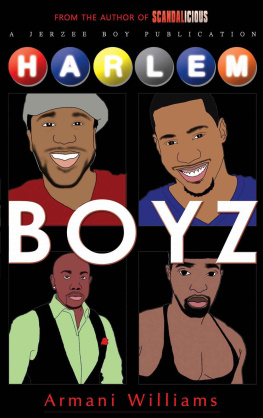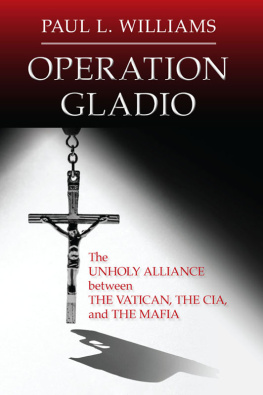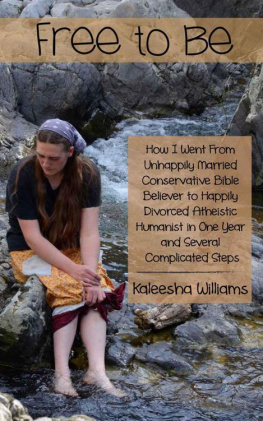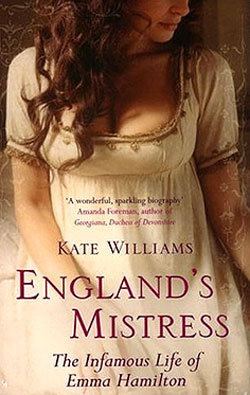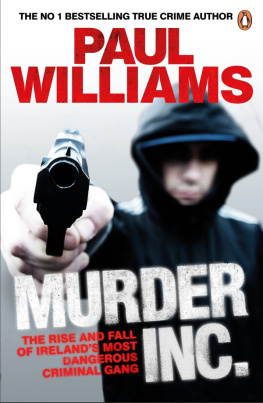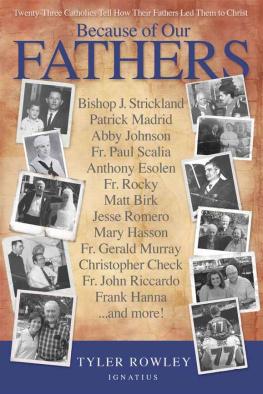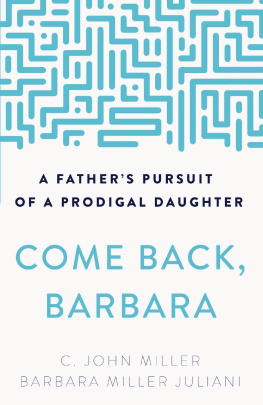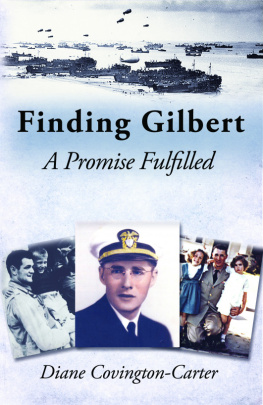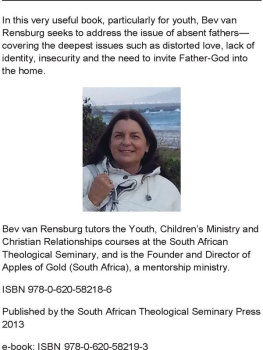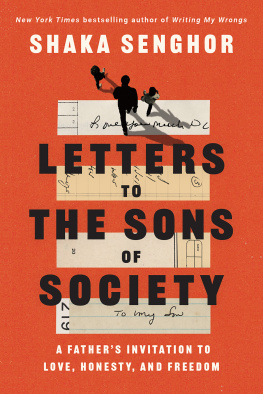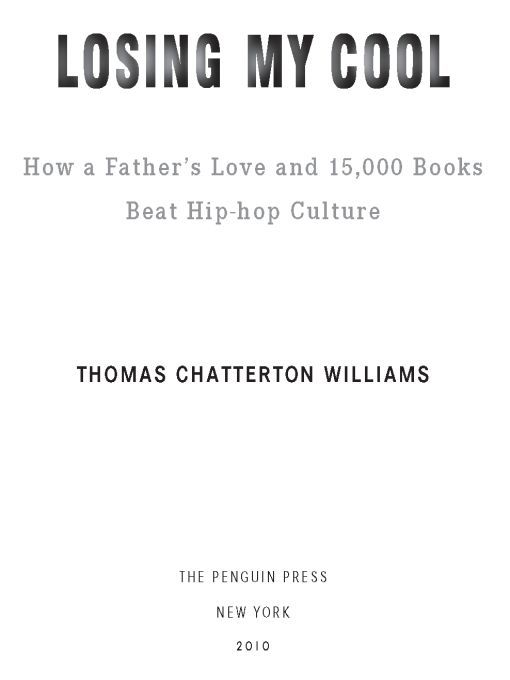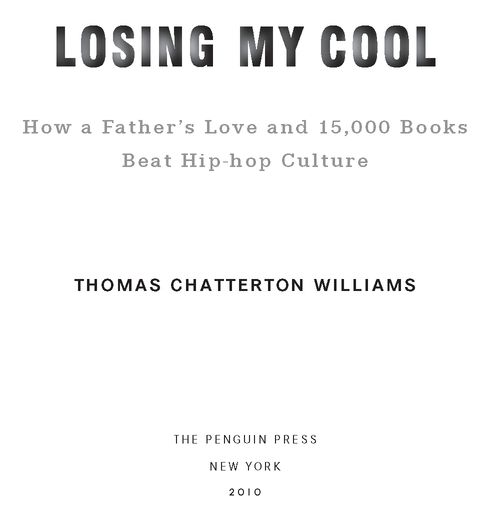Table of Contents
For my parents, Kathleen and Clarence Leon Williams, and for my brother, Clarence Leon Williams II,
With all my love
People who cling to their illusions find it difficult, if not impossible, to learn anything worth learning: a people under the necessity of creating themselves must examine everything, and soak up learning the way the roots of a tree soak up water.
JAMES BALDWIN
I understand you... I mean, if Im right, I think I understand you. Youre like me and Im like you. We arent happy. The atmosphere around us is stifling. We pretend theres nothing wrong, but there is. Whats wrong? Were being fucking stifled.
ROBERTO BOLAO
PREFACE
This book was conceived while I was still a student in graduate school. It was initially intended to be an explicit argument, a work of cultural criticism and not a document of myor, for that matter, anyone elsespersonal life. As I began writing, however, my abstract critiques gradually gave way to some very specific anecdotes, and my fathers calming voice, along with the rambunctious voices of my neighbors, classmates, and old friends flooded my mind and seeped out onto the page, seemingly with a force all their own. Czeslaw Milosz, the Polish poet, once observed, When a writer is born into a family, that family is doomed. I know what he means by that. Ultimately, the autobiographical nature of this book has led me to include scenes, stories, descriptions, depictions, quotes, and implications about myself and others with which I am certain my familyespecially my father, a very private manwill not be completely at ease seeing in print. The logical question, then, the question I have wrestled with over the past two years, is this: If you know in advance that you are going to disturb the people you love most by writing what you intend to write, why write it at all? The only way one could ever justify doing such a thing, I am convinced, is if the personal information being exposed and dealt with is not splattered about gratuitously but is put to use always in service of some larger idea, some greater good. Mere exhibitionism for its own sake is indefensible at best. It is my sincerest hope, then, that I have met my own standard in the pages that follow and that my love is evident throughout.
An additional concern presented itself as the writing grew more personal. None of the characters who populate this bookclassmates, neighbors, friends and enemies alikewas aware at the time of our acquaintance that they were opening themselves up to the scrutiny of a memoirist. With that in mind, and with the exception of my family, certain friends and public figures, the names and identifying characteristics of most of the persons included in this memoir have been changed to protect their privacy.
CHAPTER ONE
The Discovery of What It Means to Be a Black Boy
It was wintertime, early in the morning. I was in the third grade, standing on the rectangular asphalt playground behind Holy Trinity Interparochial School in Westfield, New Jersey, palming a tennis ball, waiting. Ned, nearsighted and infamous for licking the dusty soles of his penny loafers in the back of social studies class, was splayed against the cold orange brick wall of the school building. He had his head down and hands up, legs akimbo with his butt out, like a South American mule bracing herself to be searched by border patrol. Not so hard! he cried, glancing back over his shoulder through smudged Coke-bottle lenses.
Put your head down! another boy yelled.
Fine, just do it and get it over with, then, Ned muttered.
Head down! the boy said. I wound my arm back and let fly a fastball that seemed to hang in the air for a second before ricocheting from the small of Neds back like a Pete Sampras ace off some hapless ball boy at Wimbledon. Ned jerked upright and howled in pain. All my classmates screamed and high-fived me as the bell rang and we rushed to grab our book bags and line up in size order before our teachers came to lead us indoors. I was still the undisputed king of Butts-Up, I thought to myself as I pulled my Chicago Bulls Starter jacket over my uniform. Standing in line, waiting for the younger grades to file past, I began mumbling to myself bits of a song by Public Enemy, a song that my older brother had been playing at home and that had gotten stuck in my head that week like the times tables or the Holy Rosary. Yo, nigga, yoooooo, nigga, yoooo-oooooo, niiiigga... I repeated the refrain over and over under my breath, unthinkingly, as I relived in my minds eye the glorious coup de grace, the deathblow Id just dealt Ned from over ten yards awayBlaow!
But youre a nigger, too, a voice said from behind me, and I half made out what Id just heard, but not fully. I went on singing my song, which I couldnt claim to understand on any level, but which somehow made me feel cool as hell, and that was all that mattered. The voice repeated itself, louder this time: But youre a nigger, too, Thomas, arent you?
Huh? I said, pivoting to see Craig standing there, his dirty-blond hair cut by his mothers Flowbee into the shape of an upside-down serving bowl, like a medieval friar without the bald spot. What did you just say?
Youre a nigger, too, right, so how can you say that?
How can I say what?
Yo, nigga, yo, nigga; how can you say that when youre a nigger, too, right?
My mother is white, my father black. They met in San Diego in the late 1960s. Both were entrenched on the West Coast front of what at the time was called the War on Poverty. After San Diego, they went up to Los Angeles. From L.A. they made their way north and my father pursued doctoral studies in sociology at the University of Oregon. In 1975, and over my maternal grandfathers dead body, they were married in Eugene at the county courthouse. They had little money, fewer blessings, and plenty of love. Later, they moved again to Spokane and my mother, Kathleen, gave birth to their first child, Clarence, named for my father. From Spokane the family continually moved east: first to Denver, then to Albany, then to Philadelphia, and finally to New Jersey, where I was born in 1981.
When I was one year old, my father switched professions and the family moved again, this time from Newark, where he had been running antipoverty programs for the Episcopal Archdiocese and my mother had been raising my brother and me, to Fanwood, a small suburb thirty minutes to the west on U.S. Route 22. Fanwood, like the space inside a horseshoe, is bordered on three sides by the much larger township of Scotch Plains, and these two municipalities by and large function as one. They share a train station and public school system and together act as a kind of buffer ground between wealthy Westfield to the east and poor Plainfield to the west. Riots and waves of white flight long ago left Plainfield a vexed cross between a legitimate inner-city ghettowith all the requisite crime, poverty, and hopelessness that go with thatand an emergent middle-class suburb that in many ways resembles Westfield, except for the condition of the houses and the color of the residents. No such white flight occurred in Fanwood, Scotch Plains, or Westfield, although like so many small towns in New Jersey, they had their designated black pockets.
When my parents first began searching in the area, real estate brokers only wanted to show them homes in Plainfield or on the redlined black sides of town. They said families like ours tended to prefer things this way, but my father, whom we call Pappy in a nod to his Southern roots, had led a childhood that was boxed in by formal segregation in Texas, and no longer could stand to be told where to live. Out of principle he said to the brokers thank you but no thank you, and insisted on seeing all listings. Reluctantly, they caved and the four of us settled into a three-bedroom ranch on Fanwoods decidedly white side.



